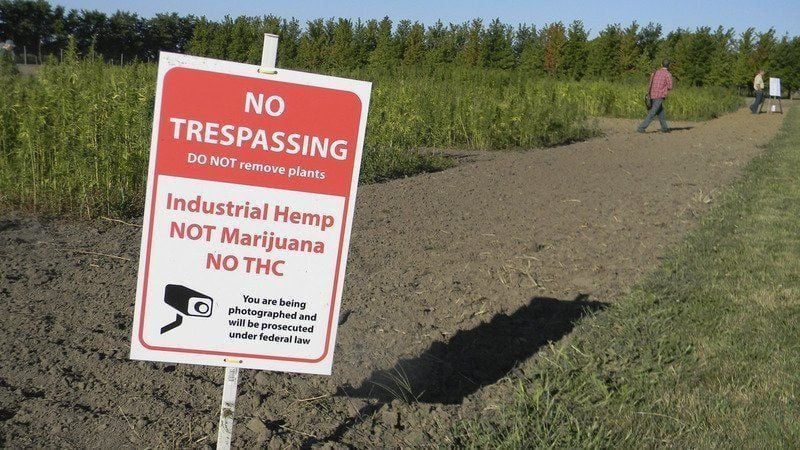Source: greensburgdailynews.com

INDIANAPOLIS -- Marijuana’s high-less cousin is a step closer to returning to Indiana.
Lawmakers have allowed the state seed commissioner to license farmers to grow industrial hemp - if and when the federal government stops treating it like a Schedule I drug.
A measure authored by Senate Agriculture Chairwoman Jean Leising, R-Oldenburg, was requested by Purdue University researchers who last summer planted the state’s first legal hemp crop in decades.
Purdue researchers foresee Congress ending a federal ban on hemp production in the United States within the next year.
“When that happens, we could be ready to open this up to anybody who want to grow it,” said Purdue agronomist Ron Turco, who’s oversees the university's hemp fields.
The hemp seed bill, passed by the House and Senate earlier this month, is narrowly tailored to give legal cover to those who sell industrial hemp seed.
It will allow seed to be sold in Indiana to farmers ready to grow it as cash or cover crop. As with corn and soybean seeds sold for commercial use, farmers won't be allowed to harvest the hemp seed from a crop for sale or reuse.
Still, Indiana's soil isn't quite ready for hemp.
Seed Commissioner Robert Waltz, on staff at Purdue, has sole authority to regulate hemp in the state. But he’s issued no permits to grow it, since state law still bars him from doing so.
The only reason why Purdue can grow it is a provision tucked into the 2013 federal farm bill that allows states and universities to grow hemp for agricultural research. Industrial hemp-growing was legalized in Indiana the following year, when Gov. Mike Pence signed a bill into law.
Hemp supporters see a future in the crop as an eco-friendly source of fiber, food and other products.
But the plant from which it comes, cannabis sativa, is technically a Schedule 1 narcotic, illegal to grow and possess, under federal law.
Leising said the link between pot and hemp makes lawmakers wary.
She intentionally separated the hemp seed proposal from another measure encouraging the state's universities to research medicinal oil extracted from the cannabis plant.
“If people perceive it as a tie to medical marijuana, it would kill the bill,” she said.
Hemp supporters say the fears are unfounded. Under Indiana law, hemp growers would be subject to random tests of their crops to ensure they contain no more than 0.3 percent THC, the psychoactive chemical in marijuana.
“It’s going come down to education,” said Justin Swanson, a board member of Indiana Industrial Hemp Association. “We have to separate hemp from marijuana in people’s minds.”
The association advocated for more aggressive legislation to give the state seed commissioner leeway to issue hemp-production permits, even before the federal issue is resolved.
At least 26 states have removed barriers to hemp production, with some liberalizing their laws more than others.
Vermont, for example, allows farmers to grow hemp but only after signing a registry in which they acknowledge that they may lose their federal subsidies and risk having their farm equipment seized by drug agents.
Purdue researchers weren’t willing to support such a step.
“We’re being cautious and deliberate about what we’re doing,” Turco said. “So anybody who wants to grow it won’t end up in trouble.”
Instead they're awaiting passage of the Industrial Hemp Farming Act, introduced in Congress last year, which excludes industrial hemp from the definition of marijuana and allows farmers in any state to grow it.
Co-sponsors include U.S. Rep. Tom Massie and Senate Majority Leader Mitch McConnell, both Republicans from Kentucky, a state that was once a leading producer of hemp. The plant was made illegal to grow without a permit under the federal Controlled Substances Act, passed in 1970 because its relation to marijuana
Massie has hopes the bill could land on President Obama’s desk this year, given its bipartisan support.
Even with a change in federal law, Purdue researchers say other challenges remain. For one, there’s no place in Indiana to process the plants into usable products.
“We’re trying to get these things worked out now,” Turco said. “So you don't plant it and get stuck with a field you can’t do anything with.”
Maureen Hayden covers the Indiana Statehouse for CNHI's newspapers and websites. Reach her atmhayden@cnhi.com. Follow her on Twitter @MaureenHayden
No comments:
Post a Comment